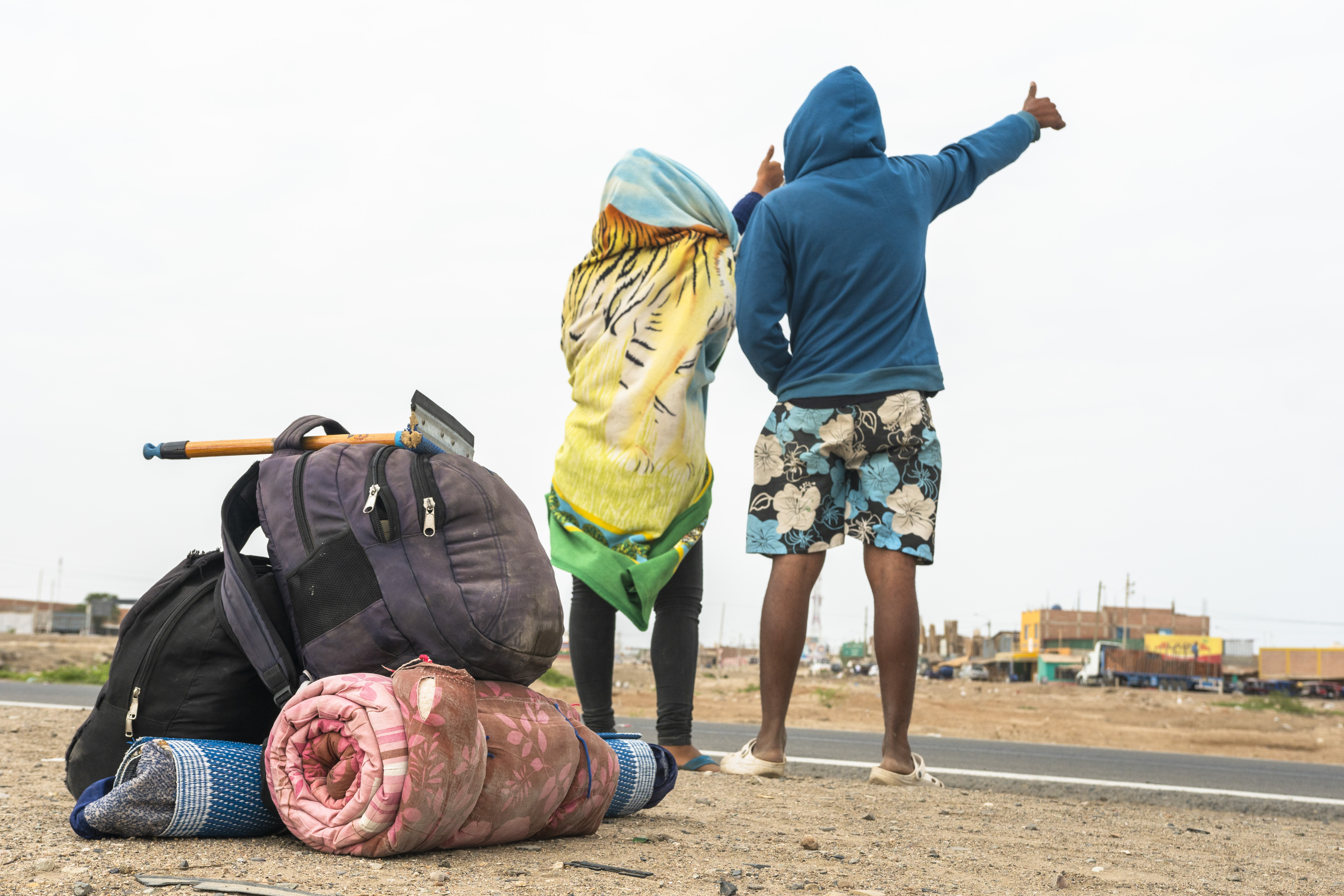Migrants’ trust in humanitarian action
Local lessons, global insights
DOI:
https://doi.org/10.21153/thl2023art1833Keywords:
Red Cross Red Crescent, ICRC, IFRC, migrants, migration, trust, humanitarianAbstract
Humanitarian action is built on trust. Without it, humanitarian organisations cannot reach or respond to the needs of the most vulnerable, including many migrants. Yet, little is known about who migrants trust and why, as well as how this affects migrants' ability and willingness to seek and access humanitarian assistance and protection. This paper explores the findings of a large multi-sited research project conducted by the Red Cross Red Crescent Global Migration Lab across 15 countries to gather insights into migrants’ perceptions of, and trust in, humanitarian action. The rationale for the project has been that humanitarian organisations can better build (and, where necessary, repair) trust with migrants by listening and responding to their thoughts, fears, doubts, and concerns about their situations and the assistance and protection they receive. In this paper, we draw attention to three key lessons: first, the importance of increasing knowledge and awareness of humanitarian organisations and the services they provide; second, the importance of upholding the humanitarian principle of independence in migration programming; and third, the critical role that frontline staff and volunteers play in building and maintaining migrants’ trust.
Downloads
References
rd International Conference of the Red Cross and Red Crescent. (2019). Summary Report from Commission III: Trust in Humanitarian Action. https://rcrcconference.org/app/uploads/2020/05/33IC-Commission-III-Trust-in-humanitarianaction-report_FINAL-EN.pdf
Arias Cubas M., Hoagland N., & Mudaliar S. (2022). Migrants’ perspectives: Building trust in humanitarian action. https://www.redcross.org.au/globalassets/cms/global-migration-lab/gml-migpers_buildtrust_english.pdf
Assessment Capacities Project (ACAPS). (2021). Our Thoughts: Rohingya share their experiences and recommendations.
Edelman. (2020). Edelman Trust Barometer Report. https://www.edelman.com/sites/g/files/aatuss191/files/2020-01/2020%20Edelman%20Trust%20Barometer%20Global%20Report.pdf
Faure Atger, A. (2019). EU migration strategy: Compromising principled humanitarian action. Forced Migration Review, 61, 30–32.
Field, J., Pandit, A., & Rajdev, M. (2021). Coping practices and gender relations: Rohingya refugee forced migrations from Myanmar to India. Gender, Place & Culture: A Journal of Feminist Geography.
Gambetta, D. (1988). Can we trust trust? In Trust: Making and breaking cooperative relationships (pp. 213–238). Basil Blackwell: Oxford.
Grayson, C. (2016). Le camp de réfugiés de Kakuma, lieu de méfiance et de défiance. Canadian Journal Of Development Studies / Revue Canadienne d’études Du Développement, 37(3), 341–357.
Hynes, T. (2003). The issue of ‘trust’ or ‘mistrust’ in research with refugees: Choices, caveats and considerations for researchers. https://www.unhcr.org/3fcb5cee1.pdf
Independent Monitoring, Research and Evidence Facility (IMREF). (2021). Exploring migrants’ trust in humanitarian organisations. https://reliefweb.int/sites/reliefweb.int/files/resources/20210305_IMREF_Exploring_Migrants%27_Trust.pdf
International Committee of the Red Cross (ICRC). (2017). The red cross, red crescent and red crystal. What do they mean? In one word: Protection. https://www.icrc.org/en/document/red-cross-red-crescent-and-red-crystal-what-do-they-meanone-word-protection
International Red Cross and Red Crescent Movement. (n.d.). Statutes of the International Red Cross and Red Crescent Movement. https://www.ifrc.org/sites/default/files/2021-07/statutes-en-a5.pdf
Jayasinghe, S. (2011). Erosion of trust in humanitarian agencies: What strategies might help? Global Health Action, 4(1).
Kotsioni, I. (2016). Detention of migrants and asylum-seekers: The challenge for humanitarian actors. Refugee Survey Quarterly, 35, 41–55.
Litzkow, L. (2021). The impact of COVID-19 on refugees and migrants on the move in North and West Africa. https://mixedmigration.org/resource/the-impact-of-covid-19-on-refugees-and-migrants-on-the-move-in-north-and-westafrica/
Mixed Migration Centre (MMC). (2019). The ever-rising securitisation of mixed migration. https://mixedmigration.org/articles/the-ever-rising-securitisation-of-mixed-migration/
Organisation for Economic Co-operation and Development (OECD). (2017). OECD Guidelines on Measuring Trust. https://doi.org/10.1787/9789264278219-en
Oxford English Dictionary. (2022). Trust. https://www.oed.com/
Slim, H. (2019). Trust Me—I’m a Humanitarian. https://blogs.icrc.org/law-and-policy/2019/10/24/trust-humanitarian/
Vammen, I., Plambech, S., Chemlali, A., & Nyberg Sørensen, N. (2021). Does information save migrants’ lives? Knowledge and needs of West African migrants en route to Europe. https://pure.diis.dk/ws/files/4209801/Does_information_save_migrants_lives_DIIS_Report_2021_01.pdf







